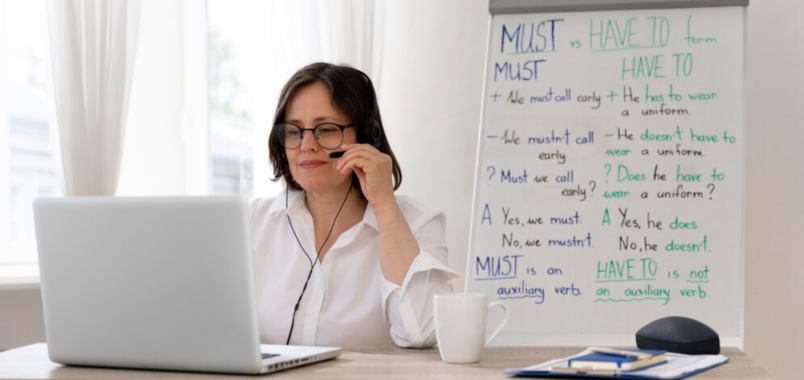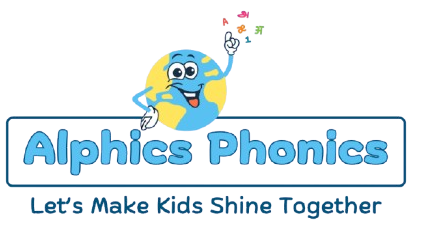What is Phonetics?
Phonetics is the scientific study of speech sounds. It is the study of how sounds are produced, transmitted, and perceived. Phonetics is a branch of linguistics that is concerned with the physical production of speech sounds.
History of Phonetics
The study of phonetics has a long history. The ancient Greeks were interested in the sounds of language, and they developed a system for describing and classifying speech sounds. However, it was not until the 19th century that phonetics began to be studied systematically. In the 20th century, phonetics became an important part of linguistics and speech-language pathology.
Why is Phonetics Important?
Phonetics is important for a number of reasons. It helps us to understand how language works. It can also help us to improve our pronunciation and our ability to understand different accents. Phonetics is also used in speech-language pathology to help people with speech and language disorders.
Who Can Learn Phonetics?
Anyone can learn phonetics. It is not necessary to have any prior knowledge of linguistics or phonetics. However, it is helpful to have some basic knowledge of the structure of language.
Benefits of Learning Phonetics
There are many benefits to learning phonetics. Some of the benefits include:
- Improved pronunciation
- Improved listening comprehension
- Better understanding of language structure
- Increased ability to learn new languages
- Improved communication skills
What is the International Phonetic Alphabet (IPA)?
The International Phonetic Alphabet (IPA) is a system of symbols that represent the sounds of all the world's languages. The IPA is used by linguists, phoneticians, and speech-language pathologists.
Where Can I Learn Phonetics?
There are many resources available for learning phonetics. You can find books, websites, and online courses. You can also find phonetics teachers in your local area.
Phonetics or Phonics?
Phonetics and phonics are two different things. Phonetics is the scientific study of speech sounds. Phonics is a method of teaching reading that emphasizes the relationship between sounds and letters.
| Feature | Phonetics | Phonics |
|---|---|---|
| Definition | The scientific study of speech sounds. It involves the physical production, transmission, and perception of speech sounds. | A teaching method that focuses on the relationship between sounds and letters in written language. It helps learners decode and encode words. |
| Focus | The production and perception of speech sounds. | The relationship between sounds and written symbols. |
| Scope | Broader, encompassing all aspects of speech sounds, including their acoustic properties, articulatory features, and auditory perception. | Narrower, primarily focused on the sounds of English and their corresponding letters or letter combinations. |
| Use | By linguists, speech-language pathologists, and language learners to analyze and describe language sounds. | By educators to teach reading and writing skills, especially for early learners. |
| Key Concepts | Phoneme, allophone, IPA symbols, articulation, acoustics. | Phonemes, graphemes, phonics rules, blending, segmenting. |
| Example | Analyzing the different pronunciations of the "th" sound in "thin" and "this." | Teaching a child to sound out the word "cat" by identifying the sounds /k/, /æ/, and /t/. |
Phonetics 44 Sounds with Examples
There are 44 sounds in English. Here are some examples of these sounds:
- /p/ as in "pat"
- /b/ as in "bat"
- /t/ as in "cat"
- /d/ as in "dog"
- /k/ as in "cat"
- /g/ as in "got"
- /f/ as in "fat"
- /v/ as in "vat"
- /θ/ as in "thin"
- /ð/ as in "this"
- /s/ as in "sit"
- /z/ as in "zoo"
- /ʃ/ as in "ship"
- /ʒ/ as in "vision"
- /tʃ/ as in "church"
- /dʒ/ as in "judge"
- /m/ as in "mat"
- /n/ as in "not"
- /ŋ/ as in "sing"
- /l/ as in "let"
- /r/ as in "rat"
- /j/ as in "yes"
- /w/ as in "wet"
- /h/ as in "hat"
- /ɪ/ as in "bit"
- /ɛ/ as in "bet"
- /æ/ as in "bat"
- /ʌ/ as in "cut"
- /ɒ/ as in "cot"
- /ʊ/ as in "put"
- /ə/ as in "about"
- /ɜː/ as in "bird"
- /ɑː/ as in "father"
- /ɔː/ as in "caught"
- /ʊː/ as in "boot"
- /iː/ as in "beat"
- /eɪ/ as in "bait"
- /aɪ/ as in "bite"
- /ɔɪ/ as in "boy"
- /əʊ/ as in "boat"
- /aʊ/ as in "about"
Phonetics Symbols with Examples Here are some examples of phonetics symbols:
- /p/ - pat
- /b/ - bat
- /t/ - cat
- /d/ - dog
- /k/ - cat
- /g/ - got
- /f/ - fat
- /v/ - vat
- /θ/ - thin
- /ð/ - this
- /s/ - sit
- /z/ - zoo
- /ʃ/ - ship
- /ʒ/ - vision
- /tʃ/ - church
- /dʒ/ - judge
- /m/ - mat
- /n/ - not
- /ŋ/ - sing
- /l/ - let
- /r/ - rat
- /j/ - yes
- /w/ - wet
- /h/ - hat
- /ɪ/ - bit
- /ɛ/ - bet
- /æ/ - bat
- /ʌ/ - cut
- /ɒ/ - cot
- /ʊ/ - put
- /ə/ - about
- /ɜː/ - bird
- /ɑː/ - father
- /ɔː/ - caught
- /ʊː/ - boot
- /iː/ - beat
- /eɪ/ - bait
- /aɪ/ - bite
- /ɔɪ/ - boy
- /əʊ/ - boat
- /aʊ/ - about
About the Alphics Phonics Alphics Phonics is a unique and innovative approach to teaching phonics. It uses a combination of traditional and modern methods to help children learn to read and write. Alphics Phonics is based on the latest research in cognitive science and child development.
How We Are Different Alphics Phonics is different from other phonics programs in a number of ways. We use a multisensory approach that engages all of the senses. We also use a variety of teaching strategies, including games, songs, and stories. Our program is also designed to be flexible and adaptable to the needs of individual children.
Where to Learn Phonetics There are many resources available for learning phonetics. You can find books, websites, and online courses. You can also find phonetics teachers in your local area.
Phonetics Syllabus A typical phonetics syllabus might include the following topics:
- Introduction to phonetics
- The International Phonetic Alphabet (IPA)
- Consonants
- Vowels
- Suprasegmentals
- Phonetic transcription
- Phonetic analysis
- Phonetic disorders
Conclusion Phonetics is a fascinating and important subject. It can help us to understand how language works and to improve our communication skills. If you are interested in learning more about phonetics, there are many resources available to you.


